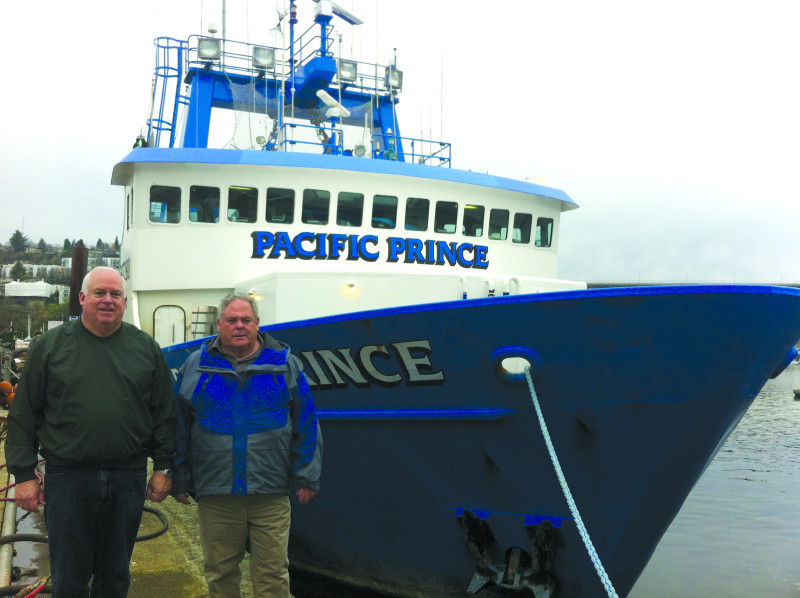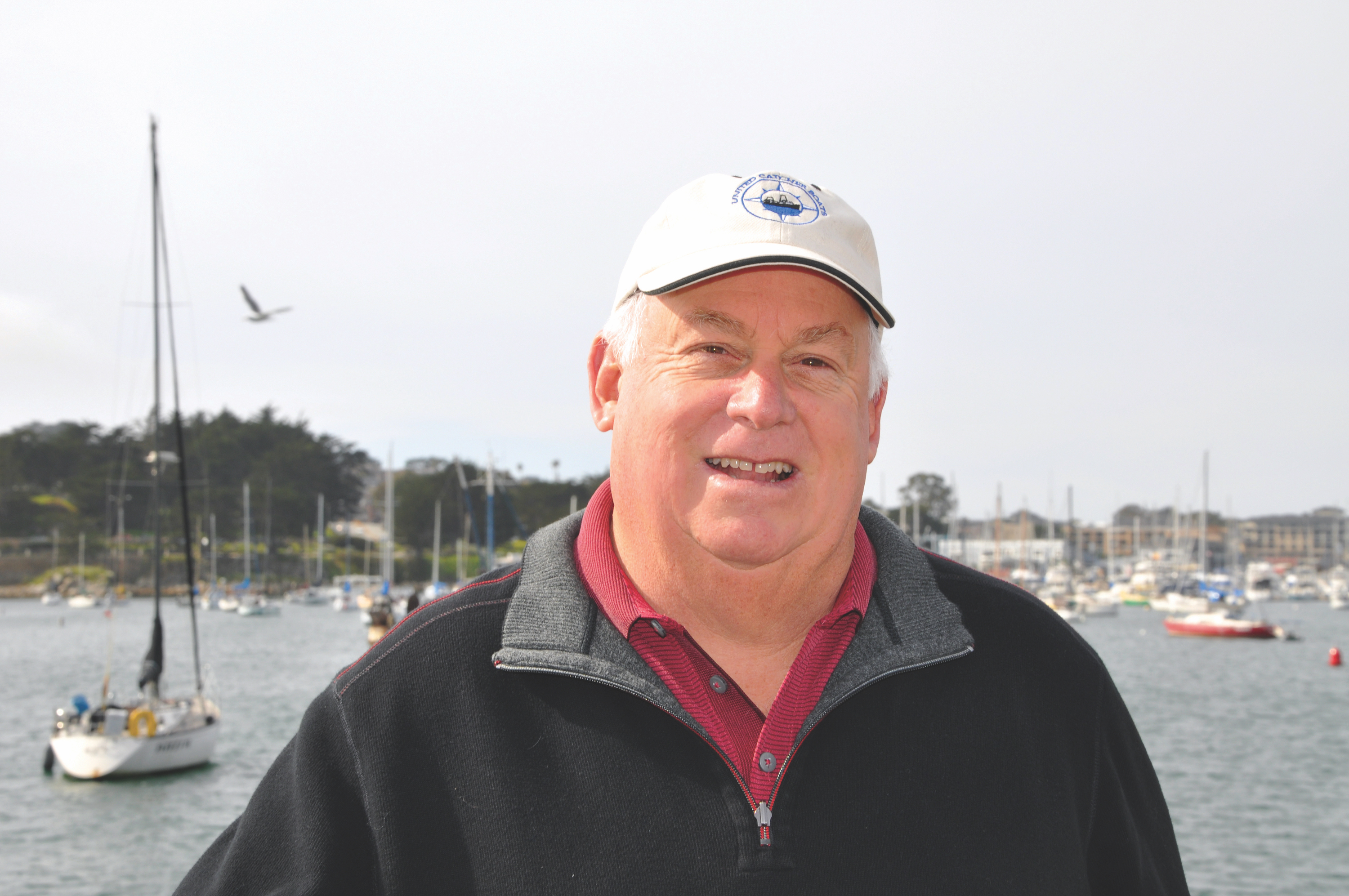People tend to repeat certain words when they talk about Bob Dooley: generous, humble, knowledgeable, smart, nice, friend. Now 63 years old and retired from active fishing, Dooley, along with his late brother and longtime business partner, John, left an edible mark on the fishing industry, particularly in the Bering Sea pollock and Pacific whiting fisheries.
The Dooleys sold their pollock boats in 2013 and finally parted with their last boat, the Shellfish, a Dungeness crabber also used as a tender, in May of this year, shortly before John passed away. Reflecting on retirement, Dooley says 33 winters on the Bering Sea “was enough,” and while he does not miss the long winters or working on boats in the shipyard, he does miss the camaraderie. And his fellow fishermen will miss his solidarity.

Dooley’s long-time fishing partner, Brent Paine, is now the executive director of United Catcher Boats, an organization Dooley helped found in 1994 and would later head from 1998-2013.
“There are two kinds of fishermen. One, the tide just raises their boat, and then there is the kind where a rising tide raises all boats, and Bob was of the latter, for sure. He wasn’t necessarily getting involved in fisheries politics because he wanted to better himself and his company. He was interested in making a better fishery for all the boat owners,” Paine said.
Dooley is that unique breed of fisherman who believes catching fish is only part of the job, and his dedication to fisheries advocacy has come into sharp focus in his retirement.
“I always lived by that old adage: ‘If you’re not at the table, you’re on the menu.’ I don’t have any more boats, but I’m still active in anything and everything fisheries,” Dooley said, noting he continues his decades-long participation in the Pacific council process, and is also active in Seafood Harvesters of America, the West Coast Marine Resource Education Program and the Monterey Bay Fisheries Trust. He is also working with the Coast Guard on safety measures for fishing boats in his native California, which lag behind places like Alaska and Seattle.
During his career, Dooley helped guide the formation of the Pacific Whiting Cooperative and the Westward Pollock Cooperative and has been a member of the U.S.-Canada Pacific Whiting Treaty Advisory Panel since 2014.
John Gruver, a 2015 NF Highliner, fished pollock alongside Dooley for many years, working closely with him on bycatch avoidance and in organizations like United Catcher Boats.
“He retired from fishing, and I think he became even more involved, which I didn’t think was even possible. It’s really something what he’s involved with. He continues to broaden his spectrum. It’s pretty cool,” Gruver said.
Born in Half Moon Bay, Calif., Dooley’s father was a part-time fisherman, his mother ran a seafood restaurant, and he had an uncle who was a full-time fisherman and fish buyer. Dooley, who still calls Half Moon Bay home, got his first paid fishing gig on a salmon troller when he was just 11. By the time he was 14, his brother John, six years his senior, took Dooley on as a business partner, the start of a lifelong alliance during which the two built boats, fished “anything and everything,” and stayed close, despite the wild swings of a trying industry.
“We were very good partners, very close through it all. And he got me into it. He was a fisherman before I was fisherman,” Dooley said of his late brother.
The 14-year-old Dooley could have never predicted how far it would go, from building boats in the Gulf of Mexico to fishing the Bering Sea and Pacific Coast to lobbying in Washington, D.C. Along the way, the Dooleys and a core group of skippers that started pollock fishing in the Bering Sea in the early 1980s shepherded in the Americanization of both the pollock and whiting fisheries.
“We really developed the pollock and Pacific whiting fisheries, kind of inventing the wheel,” Dooley said. Dooley’s political activism played a key role in developing those fisheries. He was endlessly generous with his time, often in a volunteer capacity, said Paine.
“That’s all gratis. Those guys used to fish six or seven months out of the year and when they’d come home, their time was pretty precious. More than any of the catcher boat owners I know, Bob has probably given more of his time to attend meetings and be part of fisheries management, both at the trade association level and the North Pacific council and Pacific council meetings, as well as the federal level,” Paine said.
Paine added that Dooley’s true legacy, reflected in the pollock cooperative structure Dooley helped develop, was empowering fishermen in the management of fisheries.
“Bob believed fishermen can co-manage along with the government, and they can probably do a better job, instead of the government feeling like they have police the fishery, and not a have a trusting relationship. That’s a legacy I think Bob instilled,” Paine said.
Dooley is now bringing his lifetime of experience to bear on his native California, where Sherry Flumerfelt, the executive director of the Monterey Bay Fisheries Trust and a leader of the West Coast MREP project along with Dooley, counts herself among the growing list of Bob Dooley fans.
“He’s just a good guy as well, easy to get along with, and very humble,” Flumerfelt said. “He’s so smart, and has so much information, and he shares it in a way that is just so humble. He’ll say, ‘Do whatever you want, but you might consider this.’ Then he gives you the most intelligent thing you’ve heard in months. I’m a big fan of Bob.”







